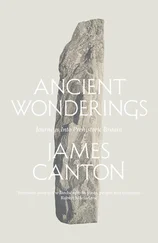Eric Chevillard - Prehistoric Times
Здесь есть возможность читать онлайн «Eric Chevillard - Prehistoric Times» весь текст электронной книги совершенно бесплатно (целиком полную версию без сокращений). В некоторых случаях можно слушать аудио, скачать через торрент в формате fb2 и присутствует краткое содержание. Год выпуска: 2012, Издательство: Archipelago Books, Жанр: Современная проза, на английском языке. Описание произведения, (предисловие) а так же отзывы посетителей доступны на портале библиотеки ЛибКат.
- Название:Prehistoric Times
- Автор:
- Издательство:Archipelago Books
- Жанр:
- Год:2012
- ISBN:нет данных
- Рейтинг книги:5 / 5. Голосов: 1
-
Избранное:Добавить в избранное
- Отзывы:
-
Ваша оценка:
- 100
- 1
- 2
- 3
- 4
- 5
Prehistoric Times: краткое содержание, описание и аннотация
Предлагаем к чтению аннотацию, описание, краткое содержание или предисловие (зависит от того, что написал сам автор книги «Prehistoric Times»). Если вы не нашли необходимую информацию о книге — напишите в комментариях, мы постараемся отыскать её.
Prehistoric Times — читать онлайн бесплатно полную книгу (весь текст) целиком
Ниже представлен текст книги, разбитый по страницам. Система сохранения места последней прочитанной страницы, позволяет с удобством читать онлайн бесплатно книгу «Prehistoric Times», без необходимости каждый раз заново искать на чём Вы остановились. Поставьте закладку, и сможете в любой момент перейти на страницу, на которой закончили чтение.
Интервал:
Закладка:
Myopia fuels curiosity. It is this myopia above all that the mole’s curiosity would like to break through. And our curiosity is likewise stimulated by the mysteries to which our confused spirit gives birth. In truth, everything is very simple and somewhat disappointing. Archaeology has confirmed that man in his historical fiction has always been what he is, except for a few details; successive civilizations resemble each other so closely that it would be possible to recount History backward, beginning with today, starting at the end in order to travel back through the ages all the way to the most ancient known remains; and there too we would see a logical progression with effects and causes reversed: the chain of events would seem no less inexorable than the one on which we are dependent. With the same amazement we would measure the path traveled by men from the time of telephone and automobile cities who, little by little having rid themselves of these nuisances, demolished one neighborhood at a time to make room for the peaceful and remote countryside with its farming villages where the rooftops rested on swallows’ nests until some new advances came along, simplifying, simplifying, the walls’ heavy stones that were so difficult to extract from the earth having been cleverly replaced by partitions made of branches or cob, to arrive at long last at the comfort of our modern caves, while the military engineers managed over time to reduce significantly the range of our weapons thanks to a series of technical developments intended to make them less lethal: this escapade, sketched broadly here, would have been no more ridiculous than actual history. If our ancestors had prostrated themselves before a single God, we would have shattered that rudimentary idol in order to worship, forehead to the ground, our gods as numerous as the stars. It is movement that matters, evolution regardless of the slope; there is no design, no necessity, nothing justifies History such as we can reconstitute it. Life is stubborn, it wants to endure, but no one can give it a shape or a goal. It remains a principle without consequence, a pure, unusable energy; no matter how much I dig, what’s the point if my pick only strikes the skulls of these old, old ideas?
ALL THE SAME, Professor Glatt had advised me not to let anyone come down and it was not my intention to disobey his orders. The idea of disappearing for a while in order to proceed under the proper conditions with the inventory of the nonindexed objects discovered on the Pales site was rather agreeable to me; as soon as I can escape the gaze of others, I blossom. But I absentmindedly forgot to close the door behind me, and a bunch of busybodies followed me down the steep steps that lead to the cellar where all those objects stored higgledy-piggledy are waiting to be labeled and catalogued. After which they will be distributed to various museums or entrusted to various laboratories for analysis or even exhibited here in the cave; two additional display cases will no doubt be necessary to house the collection. It is always dark in the cellar. The light switch is to your right, if you still believe in this miracle: first there appears a single lightbulb, filled to the neck with a syrupy, cloudy glow that empties slowly into the ceiling lamp’s globe (a fly falls in and drowns, poor thing) so that the darkness withdraws slightly without for all that admitting defeat, without breaking its circle of wolves and dangers; now you can make out more distinctly the many assorted crates lined up against the four walls of hollow cinder block that has been specially treated to prevent leaks with an exterior waterproof coating that is totally ineffective because the inside plaster has rotted and moisture oozes in long yellowish streaks that swell as they branch out over the entire surface to be irrigated, and blisters form, and sometimes a fat, soft scale (think of that creamy petal that falls off the rose before the others) comes loose and silently strikes the floor, a compressed concrete slab reinforced with a welded wire mesh separated from the load-bearing beams and hourdi blocks by a polystyrene insulating panel that rests and weighs on a peripheral foundation of cinder blocks with a supporting partition wall, and continuous footing measuring 50 cm x 40 cm: nothing to worry about here.
Nothing to hope for either. No way out this time, no possibility of escape or evasion, unless I sit here amid the crates, head in hand, to move no more. But how long could I hold out? Hands don’t know what to do with the head that’s entrusted to them. Even the most skillful hands become blind and clumsy, the spriest hands are crippled, and even the meticulous hands that repair watches all day long a duck wouldn’t want for feet; so my hands, enfeebled by my extensive reading in rheumatology, are burdened by this head, if only they could toss it to you — because you’ve followed me until now — but what would you do with it? It would inconvenience you as well and you’d go looking for someone else to pawn it off on, this head that is too full, laden with ideas; its imagination exceeds the capacity of its skull, and it would not be very loyal of you, but hey, it’s not really your problem, it’s up to me to make do with it and to live with it sitting up there, might as well set it to work, or use it to take its mind off of me, or me off its mind. I am, in any case, cornered in this cellar, out of arguments this time, I have no choice. You’ll see how I am going to rise again in Professor Glatt’s esteem.
So. Seven crates, wide but not deep, containing scrapers, spatulas, chisels, and every lithic tool brought to light by the first archaeologists of the Pales valley, as well as weapons, flint daggers, harpoon tips, short-shaft assegais and their throwing sticks, along with household utensils from the bone-tool industry — collapsing today despite the ever-greater production of its raw material (absurdities of this kind are a sign of poorly understood economics that will wind up destroying the world) — needles, awls, polishing stones already used by the Magdalenians, who were clever and assiduous artisans, for is it possible to be a contemporary of the saber-tooth tiger and close one eye to measure a length of thread? Nevertheless, other bones of various sizes, sometimes mere splinters, piles of molars and canines, entire jawbones, leg bones and arm bones that went to the dogs, or paw bones, have not been studied and lie in a jumble: I don’t want to brag, but it seems to me that with a bit of patience I’ll manage to put them back together as if this were truly the order of things and that death preceded life, which is in fact created through the mechanical movements (undulatory and pendulatory) of the skeleton, once its various extremities have been gathered and properly assembled underground, I don’t believe it for a second. But it is true that in these crates lies everything you need to invent an entire world: men, beasts, materials, the necessary and the superfluous, in fragments beyond repair or in spare parts ready to be used, it’s only a question of perspective. I am paid to straighten out this mess and in particular to separate the human bones from all the others, which is a delicate matter for the differences are nonetheless similarities and if fish skeletons or snail shells are easy enough to tell apart, there are some crab legs, for example, that blur the distinction.
I’ll get back to this. Let’s not rush things. I am still speaking as a prehistorian. Let’s take a look instead at these two other crates that need to be catalogued. Sometimes you see absolutely heartbreaking scenes in museums when twenty museum-goers huddle, jostle, trample, and screech shrilly in front of some famous nude stretched out on her side who, even were she to metamorphose into a sow, would not have enough nipples to feed her litter of imbeciles; I myself saw a poor little piglet that was banned from the party by its brothers that were desperately sucking their mother’s ear — it would be a shame to wind up in such a position — especially since the piglet was finally killed and partly devoured by the sow, a sacrifice her maternal instinct demanded since she could not provide — so I will ask you to come forward one at a time and not remain in front of each crate for very long. That having been said, were something to happen as a result of their not respecting these instructions, I would not allow myself to be held responsible. That would be pushing it. I warned them, I mentioned the dangers, I added a deterrent counterexample to my recommendations, they heeded me not. They scrambled en masse to the crates, and hence the tragedy. I myself nearly suffocated to death, and now they want to punish me for professional misconduct, well I never, if that’s what they call justice in our country, there’s nothing to be proud of, so this is how justice is served, and I used to have faith in my country’s judiciary, etc., and my cheeks will be on fire, and nothing will hold me back if I am accused, should an accident happen if you do not follow my instructions. True, the cave’s treasure is all there in these crates, right before your eyes, within reach. At first glance, they look as if they contained mere stones. Which a less superficial examination — for the first glance always stops at surface appearance (still, the ruse of the stick insect — which, as its name implies, looks like a twig so as to fool the voracious blackbird but winds up being used to build the bird’s nest — is idiotic) — which this less superficial examination in fact confirms: three large smooth rocks in one crate, and the other filled to the top with worthless pebbles. Two millstones and a mortar in one, and in the other all the way to the top, fragments of variously colored minerals — everything necessary to finally begin painting.
Читать дальшеИнтервал:
Закладка:
Похожие книги на «Prehistoric Times»
Представляем Вашему вниманию похожие книги на «Prehistoric Times» списком для выбора. Мы отобрали схожую по названию и смыслу литературу в надежде предоставить читателям больше вариантов отыскать новые, интересные, ещё непрочитанные произведения.
Обсуждение, отзывы о книге «Prehistoric Times» и просто собственные мнения читателей. Оставьте ваши комментарии, напишите, что Вы думаете о произведении, его смысле или главных героях. Укажите что конкретно понравилось, а что нет, и почему Вы так считаете.












